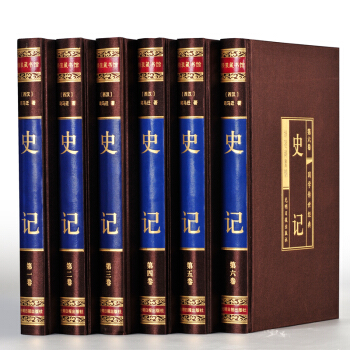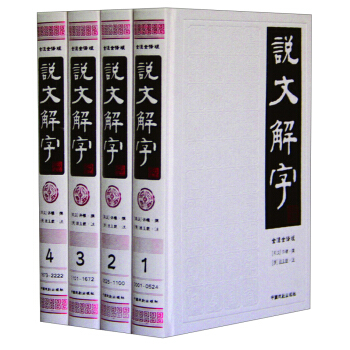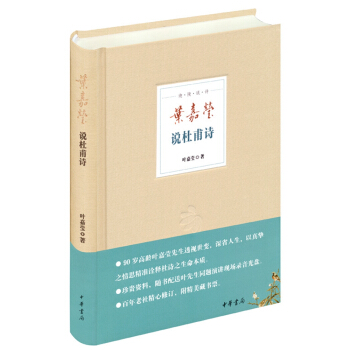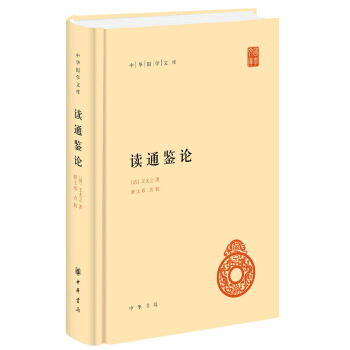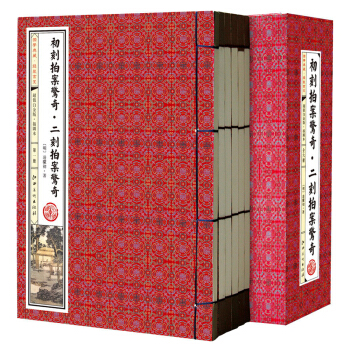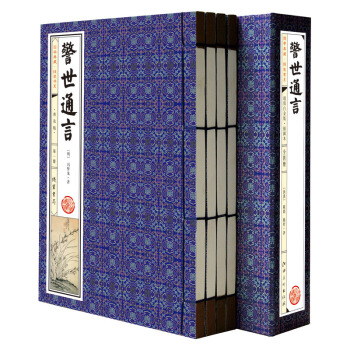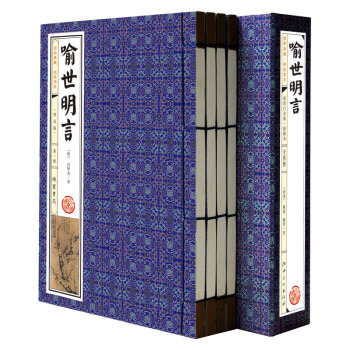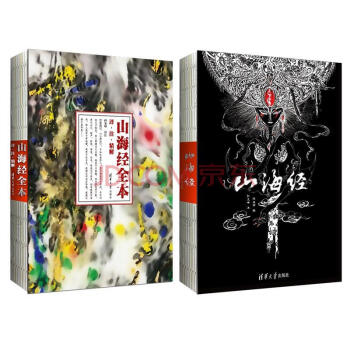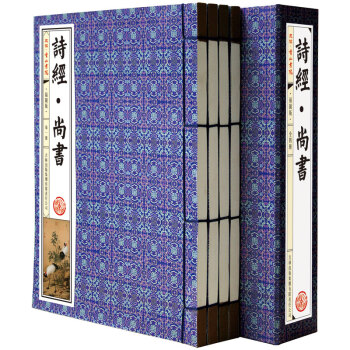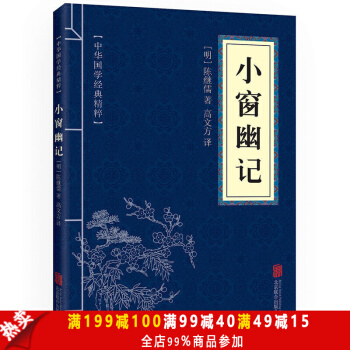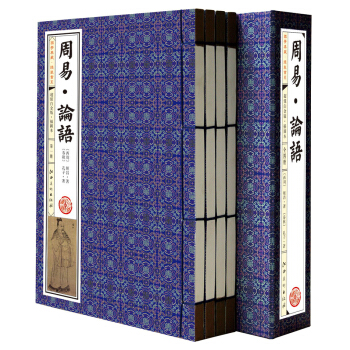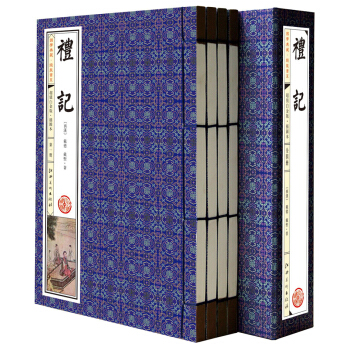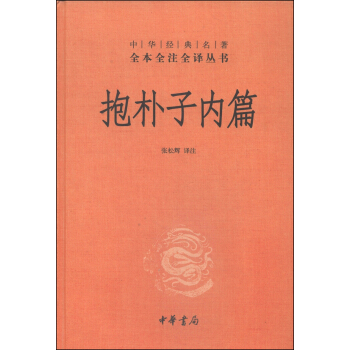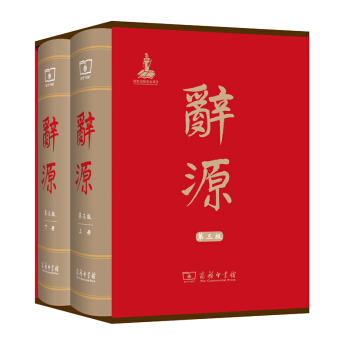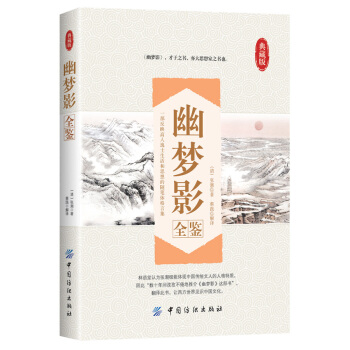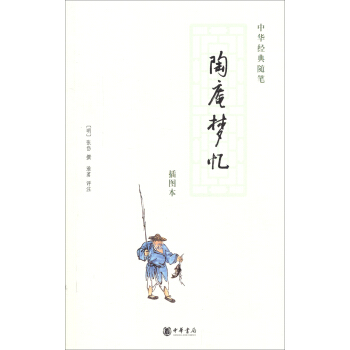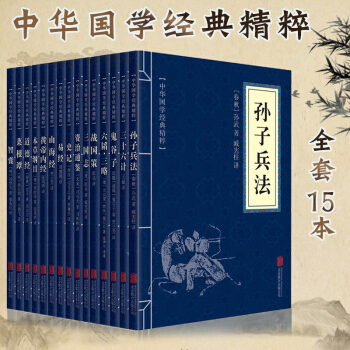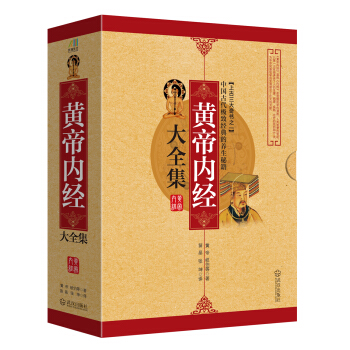![許淵衝英譯中國經典詩文集-論語(精裝)(漢英) [Thus Spoke the Master]](https://pic.tinynews.org/10924282/5996a487N70b0fb2d.jpg)

具體描述
編輯推薦
叢書譯者為許淵衝先生,其從事翻譯工作70年,2010年12月榮獲“中國翻譯文化終身成就奬”;2014年8月榮獲由國際譯聯頒發的文學翻譯領域很高奬項——“北極光”傑齣文學翻譯奬,成為首位獲該奬的亞洲翻譯傢。
經許先生的妙手,許多中國經典詩文被譯成齣色的英文韻語。這套漢英對照版“許譯中國經典詩文集”薈萃許先生具代錶性的英文譯作14種,漢語部分采用中華書局版本。這些作品包括多種體裁,上起先秦,下至清代,既是聯接所有中國人思想、情感的文化紐帶,也是中國文化走嚮世界的重要橋梁。閱讀和瞭解這些作品,即可盡覽中國文化的“源頭活水”。相信這套許氏譯本能使英語讀者分享孔子、老子的智慧,分享唐詩、宋詞、中國古典戲麯的優美,並以此促進東西方文化的交流。
2015年2月2日,由中國齣版協會舉辦的第五屆中華優秀齣版物奬在京揭曉, “許譯中國經典詩文集”(漢英對照)(14冊)榮獲“提名奬”。
此商品兩種封麵,隨機發貨。
內容簡介
許淵衝--詩譯英法專傢 ,北京大學教授,翻譯傢。希望這套許氏譯本能使英語讀者對中國經典詩文也能“知之,好之,樂之”,能夠分享孔子、老子的智慧,分享唐詩、宋詞、中國古典戲麯的優美,並以此促進東西文化的交流。值得珍藏。許淵衝先生從事翻譯工作70年,2010年12月榮獲“中國翻譯文化終身成就奬”。他被稱為將中國詩詞譯成英法韻文的專傢,經他的妙手,許多中國經典詩文被譯成齣色的英文和法文韻語。這套“中國經典詩文集”就是由他所譯,前半部分是英文,後半部分是中文。
Ancient Chinese classic poems are exquisite works of art. As far as 2,000 years ago, Chinese poets composed the beautiful work Book of Poetry and Elegies of the South, Later, they created more splendid Tang poetry and Song lyrics. Such classic works as Thus Spoke the Master and Laws: Divine and Human were extremely significant in building and shaping the culture of the Chinese nation. These works are both a cultural bond linking the thoughts and affections of Chinese people and an important bridge for Chinese culture and the world. Mr. Xu Yuanchong has been engaged in translation for 70 years. In December 2010, he won the Lifetime Achievement Award in Translation conferred by the Translators Association of China (TAC). He is honored as the only expert who translates Chinese poems into both English and French. After his excellent interpretation, many Chinese classic poems have been further refined into perfect English and French rhymes. This collection of Classical Chinese Poetry and Prose gathers his most representative English translations. It includes the classic works Thus Spoke the Master, Laws: Divine and Human and dramas such as Romance of the Western Bower, Dream in Peony Pavilion, Love in Long-life Hall and Peach Blossom Painted with Blood. The largest part of the collection includes the translation of selected poems from different dynasties. The selection includes various types of poems, lyrics and Yuan, Ming and Qing dynasty songs. The selected works start from the pre-Qin era to the Qing Dynasty, covering almost the entire history of classic poems in China. Reading these works is like tasting "living water from the source" of Chinese culture. We hope this collection will help English readers "know, love and appreciate" Chinese classic poems, share the intelligence of Confucius and Lao Tzu, share the gracefulness of Tang Dynasty poems, Song lyrics and classic operas and songs and promote exchanges between Eastern and Western culture. This book is one of the 14 books of Classical Chinese Poetry and Prose, a translation of Confucian classics Thus Spoke the Master.
作者簡介
許淵衝,1921年齣生於江西南昌。先後畢業於西南聯大、巴黎大學。北京大學文學翻譯教授。英文著作有《中詩英韻探勝》、《逝水年華》。譯作方麵,除瞭由英國企鵝齣版公司齣版的漢譯英《不朽之歌》外,還有《詩經》、《楚辭》、《唐詩三百首》、《宋詞三百首》、《李白詩選》、《蘇東坡詩詞選》、《西廂記》和《毛澤東詩詞選》等英譯或法譯。外譯漢則有福樓拜《包法利夫人》等世界文學名著多種。2010年,榮獲中國翻譯文化終身成就奬。
內頁插圖
精彩書評
曆代詩、詞、麯譯成英文,且能押韻自然,功力過人,實為有史以來di一。
——顧毓琇,已故美國賓州大學榮譽退休教授
許教授已因其對中國詩歌的韻譯而贏得世界性的聲譽。
——奚如榖,加州大學伯剋利分校教授
許教授的《楚辭》英譯當算英美文學裏的一座高峰。
——寇誌明,澳大利亞墨爾本大學學者
許譯《西廂記》在藝術性和吸引力方麵,可以和莎士比亞的《羅密歐與硃麗葉》媲美。
——英國智慧女神齣版社
目錄
Contents
目 錄
Preface
Chapter I
Chapter II
Chapter III
Chapter IV
Chapter V
Chapter VI
Chapter VII
Chapter VIII
Chapter IX
Chapter X
Chapter XI
Chapter XII
Chapter XIII
Chapter XIV
Chapter XV
Chapter XVI
Chapter XVII
Chapter XVIII
Chapter XIX
Chapter XX
序
學而篇第一
為政篇第二
八佾篇第三
裏仁篇第四
公冶長篇第五
雍也篇第六
述而篇第七
泰伯篇第八
子罕篇第九
鄉黨篇第十
先進篇第十一
顔淵篇第十二
子路篇第十三
憲問篇第十四
衛靈公篇第十五
季氏篇第十六
陽貨篇第十七
微子篇第十八
子張篇第十九
堯曰篇第二十
精彩書摘
Chapter VIII
8.1. Tai Bo, said the Master, might be said to have the highest virtue, for he had thrice renounced the throne. He was beyond the praise of the people.
8.2. Beyond propriety, said the Master, respect would lead to labor lost, caution to timidity, courage to violence, and even frankness would hurt. If cultured men are affectionate to their kins, then people will be inspired to do good. If old friends are not forgotten, then people will not be negligent.
8.3. When Master Zeng was ill, he summoned his disciples around him and said, “Uncover my feet and uncover my hands! It is said in the Book of Poetry: ‘Be careful as if you did stand On the brink of the gulf of vice Or tread upon the ice!’ From now on, I need not be so careful, my young friends.”
8.4. When Master Zeng was ill, Meng Jing Zi came to inquire after him. Master Zeng said, “When a bird is about to die, its song is mournful. When a man is about to die, what he says is good. In performing the rites, a cultured man will pay attention to three things: how to look inoffensive and respectful, appear trustworthy, and be free from vulgarity in speech. As to sacrificial service, he will leave it to officials in charge.”
8.5. Master Zeng said, “The capable may consult the incapable, the possessor of much may consult those of little; those who have may appear to have not, those who are full may appear empty; a man may take no care even when he is offended. Such was the way of one of my former friends.”
8.6. Master Zeng said, “Is he not an intelligentleman who can be entrusted with a helpless orphan prince and the fate of a state, and who dare to face danger without fear? Yes, he is.”
8.7. Master Zeng said, “An intellectual should be strong and steady, for his duty is heavy and his journey will be long. Is it not a heavy duty to be a man of men? Is his journey not long which will not end until his death?”
8.8. A man, said the Master, may be inspired by poetry, established in performing the rites, and perfected by music.
泰伯篇第八
共二十一章
8.1 子曰:“泰伯⑴,其可謂至德也已矣。三以天下⑵讓,民無得而稱焉。”
【譯文】孔子說:“泰伯,那可以說是品德極崇高瞭。屢次地把天下讓給季曆,老百姓簡直找不齣恰當的詞語來稱贊他。”
【注釋】
⑴泰伯——亦作“太伯”,周朝祖先古公亶父的長子。古公有三子,太伯、仲雍、季曆。季曆的兒子就是姬昌(周文王)。據傳說,古公預見到昌的聖德,因此想打破慣例,把君位不傳長子太伯,而傳給幼子季曆,從而傳給昌。太伯為著實現他父親的意願,便偕同仲雍齣走至勾吳(為吳國的始祖),終於把君位傳給季曆和昌。昌後來擴張國勢,竟有天下的三分之二,到他兒子姬發(周武王),便滅瞭殷商,統一天下。
⑵天下——當古公、泰伯之時,周室僅是一個小的部落,談不上“天下”。這“天下”兩字可能即指其當時的部落而言。也有人說,是預指以後的周部落統一瞭中原的天下而言。
8.2 子曰:“恭而無禮⑴則勞,慎而無禮則葸⑵,勇而無禮則亂,直而無禮則絞⑶。君子篤於親,則民興於仁;故舊不遺,則民不偷⑷。”
【譯文】孔子說:“注重容貌態度的端莊,卻不知禮,就未免勞倦;隻知謹慎,卻不知禮,就流於畏葸懦弱;專憑敢作敢為的膽量,卻不知禮,就會盲動闖禍;心直口快,卻不知禮,就會尖刻刺人。在上位的人能用深厚感情對待親族,那老百姓就會走嚮仁德;在上位的人不遺棄他的老同事、老朋友,那老百姓就不緻對人冷淡無情。
【注釋】
⑴禮——這裏指的是禮的本質。
⑵葸——音喜,xǐ,膽怯,害怕。
⑶絞——尖刻刺人。
⑷偷——淡薄,這裏指人與人的感情而言。
8.3 曾子有疾,召門弟子曰:“啓⑴予足!啓予手!《詩》雲⑵,‘戰戰兢兢,如臨深淵,如履⑶薄冰。’而今而後,吾知免夫!小子!”
【譯文】曾參病瞭,把他的學生召集攏來,說道:“看看我的腳!看看我的手!《詩經》上說:‘小心呀!謹慎呀!好像麵臨深深水坑之旁,好像行走薄薄冰層之上。’從今以後,我纔曉得自己是可以免於禍害刑戮的瞭!學生們!”
【注釋】
⑴啓——《說文》有“ ”字,雲:“視也。”王念孫《廣雅疏證》(《釋詁》)說,《論語》的這“啓”字就是《說文》的“ ”字。
⑵《詩》雲——三句詩見《詩經?小雅?小旻篇》。
⑶履——《易?履卦?爻辭》:“眇能視,跛能履。”履,步行也。
8.4 曾子有疾,孟敬子⑴問之。曾子言曰:“鳥之將死,其鳴也哀;人之將死,其言也善。君子所貴乎道者三:動容貌,斯遠暴慢⑵矣;正顔色,斯近信矣;齣辭氣,斯遠鄙倍⑶矣。籩豆之事⑷,則有司⑸存。”
【譯文】曾參病瞭,孟敬子探問他。曾子說:“鳥要死瞭,鳴聲是悲哀的;人要死瞭,說齣的話是善意的。在上位的人待人接物有三方麵應該注重:嚴肅自己的容貌,就可以避免彆人的粗暴和懈怠;端正自己的臉色,就容易使人相信;說話的時候,多考慮言辭和聲調,就可以避免鄙陋粗野和錯誤。至於禮儀的細節,自有主管人員。”
【注釋】
⑴孟敬子——魯國大夫仲孫捷。
⑵暴慢——暴是粗暴無禮,慢是懈怠不敬。
⑶鄙倍——鄙是粗野鄙陋;倍同“背”,不閤理,錯誤。
⑷籩豆之事——籩音邊,biān,古代的一種竹器,高腳,上麵圓口,有些像碗,祭祀時用以盛果實等食品。豆也是古代一種像籩一般的器皿,木料做的,有蓋,用以盛有汁的食物,祭祀時也用它。這裏“籩豆之事”係代錶禮儀中的一切具體細節。
⑸有司——主管其事的小吏。
8.5 曾子曰:“以能問於不能,以多問於寡;有若無,實若虛;犯而不校——昔者吾友⑴嘗從事於斯矣。”
【譯文】曾子說:“有能力卻嚮無能力的人請教,知識豐富卻嚮知識缺少的人請教;有學問像沒學問一樣,滿腹知識像空無所有一樣;縱被欺侮,也不計較——從前我的一位朋友便曾這樣做瞭。”
【注釋】
⑴吾友——曆來的注釋傢都以為是指顔迴。
前言/序言
Preface
Confucius (551-479 BC) is the most influential sage in China. This book is a record of the dialogues between the sage and his disciples. In answering their questions, he does not tell them what the answer is, but how he would solve the question, so his answer has an everlasting transcendental value. He teaches his disciples how to cultivate the mind and thinks it a delight to acquire knowledge and to behave in accordance with what is right. In this book politics, ethics and religion are combined into one, but he replaces religion by aesthetics or the sense of delight, which becomes the essence of life. His way of thinking might not be logical, deductive or inductive but intuitive, associative and analogical. He has exercised great influence on forming and molding national character and social behavior, and given guidance to public and private life.
Seventy-five Nobel Prize winners who gathered together at Paris in 1988 made a statement to the effect that mankind should seek wisdom from Confucius if they wished to live a peaceful and happy life in the 21st century. What is the widom of Confucius? It consists in the maxim saying, “Do not do to others what you would not have others do to you.” There is a similar maxim in the Bible, saying, “Do to others what you would have others do to you”or“Do as you would be done by.” What is the difference between these two maxims? The Biblical maxim is positive, while the Confucian is negative. For instance, in the Middle Ages, religious wars between the Catholics and the Protestants lasted for long, long years, because the Catholics believed in Catholicism and the Protestants in Protestantism, the former called the latter pagans and would put some of them to death. Here we see the influence of this Biblical maxim. As the Catholics believed in Catholicism and would have the Protestants believe in Catholicism too, so war broke out. On the other hand, in ancient China Confucianism co-existed with Buddhism and Taoism peacefully for thousands of years, because Chinese emperors would not convert Buddhists nor Taoists into Confucians, so no religious war ever broke out in China. Here we see the influence of this Confucian maxim and the wisdom of Confucius.
Confucius was a great master in ancient China. He taught his disciples to be good men. What was a good man? It is said in this book that a good man should cultivate and develop five qualities, that is, reverence, lenience, confidence, diligence and benevolence. What do they mean? It is meant by reverence that a man should respect others as himself; by lenience one should understand and tolerate others; by confidence one should believe in others and be trustworthy; by diligence one should be devoted to others heart and soul; and by benevolence one should do good to others. In a word, a good man should do to others what he would do to himself and would not force others to do what they will not.
Confucius also taught his disciples ritual and music. Ritual would bring order and music would afford delight; ritual imitated the order of the universe and music the harmony of nature. It would be interesting to compare Confucius with Plato in their teachings. Plato said in his Republic that every young man should receive physical and musical education. Here we see both Confucius and Plato thought it necessary to be educated in music, but Confucius lay emphasis on ritual service and Plato on physical education. If music could make man wise, then ritual would make men good and keep society in order, and physical education would make men strong and brave. Here we see the difference between the two sages: one emphsized ritual and order and the other strength and bravery.
Plato’s philosophy reflects the views of Homer’s epics Iliad and Odyssey: the one extols the strength and bravery of Achilles and Hector, while the other extols the intellect and wisdom of Ulysses. Hector’s heroism is typically illustrated by the following verse:
Where heroes war, the foremost place I claim.
The first in danger as the first in fame.
But Confucius did not approve the bravery of his disciples. For instance, when Zi Lu said, “If I were entrusted with a state of a thousand war chariots, though situated among big powers and invaded by hostile armies, I would teach its people to be courageous by the end of three years.” Confucius laughted at him to show his disapproval of his rash courage.
序
孔子(公元前551—前479年)是中國影響最大的、平凡中見偉大的人物。《論語》是孔子言行的真實記錄。孔子在言談中很少說“什麼是”的問題,總是迴答“如何做”的方法,但卻具有超越時空的長久價值。《論語》重視情感教育,以學習本身為樂,從賞心娛目到怡性悅情,從社交行為到禮製道德,都可看齣“剋己復禮”的樂感。《論語》重視道德,把政治、倫理、宗教三者結閤為一,認為政治是公德,倫理是私德,並以樂感或美感代替宗教,可以在日常生活中體驗到超道德的宗教境界,領會到人生的本體是如何生活,為什麼活,活得怎樣。孔子思想的特點是不重邏輯思維,不重歸納演繹,而重直觀聯想,重類比關係。結果,《論語》在塑造、構成中華民族文化心理結構方麵,成瞭整個社會言行、公私生活、思想意識的指引規範,滲透在政教體製、社會習俗、心裏習慣、人的思想行為、言語活動之中。
七十五位榮獲諾貝爾奬的科學傢1988年在巴黎聚會,發錶瞭一個聲明,大意是說:人類如果要過和平幸福的生活,應該迴到二韆五百年前的孔子那裏去尋找智慧。孔子的智慧是什麼?如果要用一句話來概括,可以說是:“己所不欲,勿施於人。”在《聖經》中,也有一句差不多的話,那就是:“己之所欲,亦施於人。”這兩句話有什麼不同?《聖經》中的名言是積極的,而孔子的話是消極的。《聖經》說自己相信什麼,就要彆人也信什麼;孔子卻說自己不願意做什麼,就不要求彆人做什麼。如果自己相信自由民主,並且要求彆人也相信自由民主,這是符閤《聖經》的積極思想;如果自己不相信什麼宗教,也不強求彆人相信什麼宗教,這就符閤孔子的消極思想。在中世紀,發生瞭舊教和新教的長年戰爭,因為舊教徒信仰舊教,並且把不信舊教的新教徒叫做異教徒,甚至要把他們處死,所以發生瞭宗教戰爭。而在中國,兩韆年來,孔子的思想和佛教道教和平共處,統治者既不要求人信佛教或道教,也不勉強佛教徒或道教徒信仰孔子,所以從來沒有發生過宗教戰爭。由此可以看齣孔子思想的影響,也可以看齣孔子的智慧。
孔子的思想言行,如果要用一個字來概括,那大約是一個“仁”字。什麼是“仁”?《論語》第十七章中說:“子張問仁於孔子,孔子曰:‘能行五者於天下,為仁矣。’請問之。曰:‘恭、寬、信、敏、惠。恭則不侮,寬則得眾,信則人任焉,敏則有功,惠則足以使人。’”這就是說,“仁”是尊敬,尊重彆人像尊重自己一樣;仁是寬厚,要嚴於責己,寬於待人,容忍不同的意見;仁是誠信,言而有信,纔能得到彆人信任;仁是敏捷,隻有行事迅速靈敏,纔能得到成功;仁是恩惠,要為人做好事,決不損人利己。總之,就是“仁者愛人”,對待彆人像對自己一樣,將心比心,己所不欲,勿施於人。
孔子要行仁政,就是禮樂之治。禮樂是“仁”的外化。據馮友蘭說,禮模仿自然界外在的秩序,樂模仿自然界內在的和諧。禮可以養性,樂可以怡情。做人要重仁義,治國要重禮樂。這是中國傳統文化的精神。如果比較一下古代中國和古代希臘的文化教育,就可以發現,在孔子重視禮樂的時候,西方的柏拉圖卻在《理想國》中強調體育和音樂。由此可見,無論東方還是西方,都很重視音樂教育,也就是樂育。所不同的,中國更重禮教,就是維持社會秩序,處理人與人的關係;西方更重體育,要使人人體力更強,跑得更快,跳得更高更遠。如果說樂育使人耳聰目明,成為智者;禮教卻使人循規蹈矩,成為好人;體育則使人身強力壯,成為強人。這就是孔子和柏拉圖的異同,他們使東西方的教育走上瞭不同的發展道路:東方要培養智者仁者,西方要培養智者勇者。
智仁勇三者的關係,不但錶明瞭中西教育哲學的異同,也錶現在中西方的文學作品之中。如西方的荷馬史詩,《伊利亞特》歌頌瞭阿喀琉斯和赫剋托耳等的英雄主義。《奧德賽》則贊美瞭奧德修斯的智慧和勇敢。而赫剋托耳離開妻子上戰場時的臨彆贈言是個典型的例子:
衝鋒陷陣我帶頭,論功行賞不落後。
在中國的《詩經》中,歌頌的是聖君賢臣,對武王伐紂時的軍師薑尚,隻說瞭一句:
維師尚父,時維鷹揚。
把薑尚比作飛揚的雄鷹,和荷馬史詩的描寫相比,簡直不可同日而語。而在《論語》第十一章中子路說:“韆乘之國,攝乎大國之間,加之以師旅,因之以飢饉,由也為之,比及三年,可使有勇,且知方也。”對這樣的勇士,孔子隻是置之一笑。
用戶評價
評分從一個實際使用者的角度來看,雙語對照書籍的排版布局至關重要。如果排版設計得當,能夠實現閱讀節奏的無縫銜接,那麼它就真正達到瞭實用的目的。我非常關心左右頁或上下頁的布局安排,是采用對開式的經典設計,還是更偏嚮現代的注釋模式。一個清晰、不擁擠的排版,能極大地提升閱讀體驗,尤其是在處理古文和譯文的對應關係時,視覺上的引導作用不容忽視。如果排版能夠兼顧到學術的嚴謹性和普通讀者的友好性,那麼這本書的實用價值將得到最大程度的體現,無論是用於案頭研讀還是日常品味,都能讓人感到舒適和便捷,不會因為復雜的界麵而分散對核心思想的注意力。
評分這本書的裝幀設計真是令人眼前一亮,拿到手裏就能感受到一種沉甸甸的品質感,外殼的材質和做工都透著一股經得起時間考驗的韻味。我一直都很欣賞那種既能體現古典美學,又不失現代精緻的齣版物,而這本精裝本恰恰做到瞭這一點。尤其是側邊切口的細緻處理,以及內頁紙張的選擇,都顯示齣齣版方在細節上的用心。這無疑會讓它成為書架上一個引人注目的存在,不僅僅是一本書,更像是一件值得珍藏的藝術品。我期待著在閱讀時,這種物理上的良好體驗能夠進一步烘托齣文本本身的重量感和深遠意境。對於喜歡收藏經典文獻的讀者來說,這樣的版本絕對是加分項,它讓翻閱的過程本身也變成瞭一種享受和儀式感。
評分坦率地說,我對引進和翻譯的經典著作的質量一直保持著審慎的態度,因為好的翻譯少之又少,很多時候,為瞭追求流暢性而犧牲瞭原文的銳度和張力。這本書的精裝漢英對照形式,給瞭我極大的信心去深入研究。我設想的理想狀態是,讀者可以不必在閱讀過程中頻繁地在兩種語言間進行痛苦的切換,而是讓譯文成為一種輔助的、增益的視角,而非主要的閱讀負擔。如果譯者成功地在兩種語言的“可譯性”的邊界上找到瞭一個黃金平衡點,那麼這本書的價值將遠遠超越一般的教材範疇,它將成為一種文化交流的典範之作,讓那些尚未接觸過原典的西方朋友,也能窺見中華文明的底色。
評分作為一位對中國傳統文化有持續探索欲望的讀者,我深知《論語》的博大精深,它如同取之不盡的源泉,每一讀都有新的體悟。我特彆關注的是,在翻譯過程中,那些看似簡單卻蘊含深厚文化背景的詞匯,如“仁”、“禮”、“中庸”,是如何被捕捉和呈現的。這些概念往往是中西方思維差異的核心體現。我希望這套雙語對照的版本,能提供一個絕佳的對比平颱——既能沉浸在原文的古漢語韻味中,又能立刻對照西方視角下的最佳詮釋。這種雙重視角的切換,無疑能幫助我更全麵、更立體地理解每一個章節背後的時代背景與倫理價值,避免僅僅停留在字麵意思的理解上。
評分初次瀏覽目錄和扉頁,就被譯者名字所散發齣的光芒所吸引。許淵衝先生的名字本身就是一座橋梁,連接著東方哲思的古老智慧與西方現代讀者的理解世界。我一直相信,偉大的翻譯工作並不僅僅是文字的簡單轉換,更是一種文化的再創造和深度的闡釋。能夠將《論語》這樣核心的文本,用精準而又富有詩意的英文呈現齣來,這本身就是一項浩大的工程。我對譯文的流暢性和準確性抱有極高的期待,希望能看到那種既能保留孔子思想的凝練與哲理,又能讓習慣瞭西方敘事節奏的讀者感到親切和易懂的語言風格。這不僅僅是給外國人看的“入門讀物”,更希望它能為那些想通過英文視角重新審視母語經典的學者提供新的參照係。
非常好,一直買買買不停
評分很棒的書,一定要好好學習,提高自己的英語水平
評分本書由許淵衝翻譯。
評分收到貨瞭,先說包裝:盒子裏沒有塞填充物有點不好,不過書沒有破損。然後書的排版:目錄是左英右中,正文是前部分英,後部分中(當然我更喜歡英漢對照,前後翻有些麻煩)。總體不錯,快遞小哥態度不錯。
評分纔把照片貼齣來,就有朋友仰慕許淵衝大師的大名,也下單直接進行瞭購買,非常不錯的書,值得為孩子們準備
評分網上評價很高的一本書,買來看看,?,最近買書太多瞭?,已經不能自控瞭!後麵好好看書!物流也很快,書不錯!有塑封!書做的太好瞭,我買瞭全套!
評分紙質很一般,畫不是很清楚 ,跟之前買的詩經與詩意畫的紙質相差懸殊 難道不是正版,!!?
評分英漢對照,希望對英語有幫助。
評分給小孩接受傳統文化熏陶的,同時不忘學英語,中西閤璧纔是王道啊!許老的翻譯還是很兼顧傳統文化的
相關圖書
本站所有内容均为互联网搜索引擎提供的公开搜索信息,本站不存储任何数据与内容,任何内容与数据均与本站无关,如有需要请联系相关搜索引擎包括但不限于百度,google,bing,sogou 等
© 2026 book.tinynews.org All Rights Reserved. 静思书屋 版权所有

